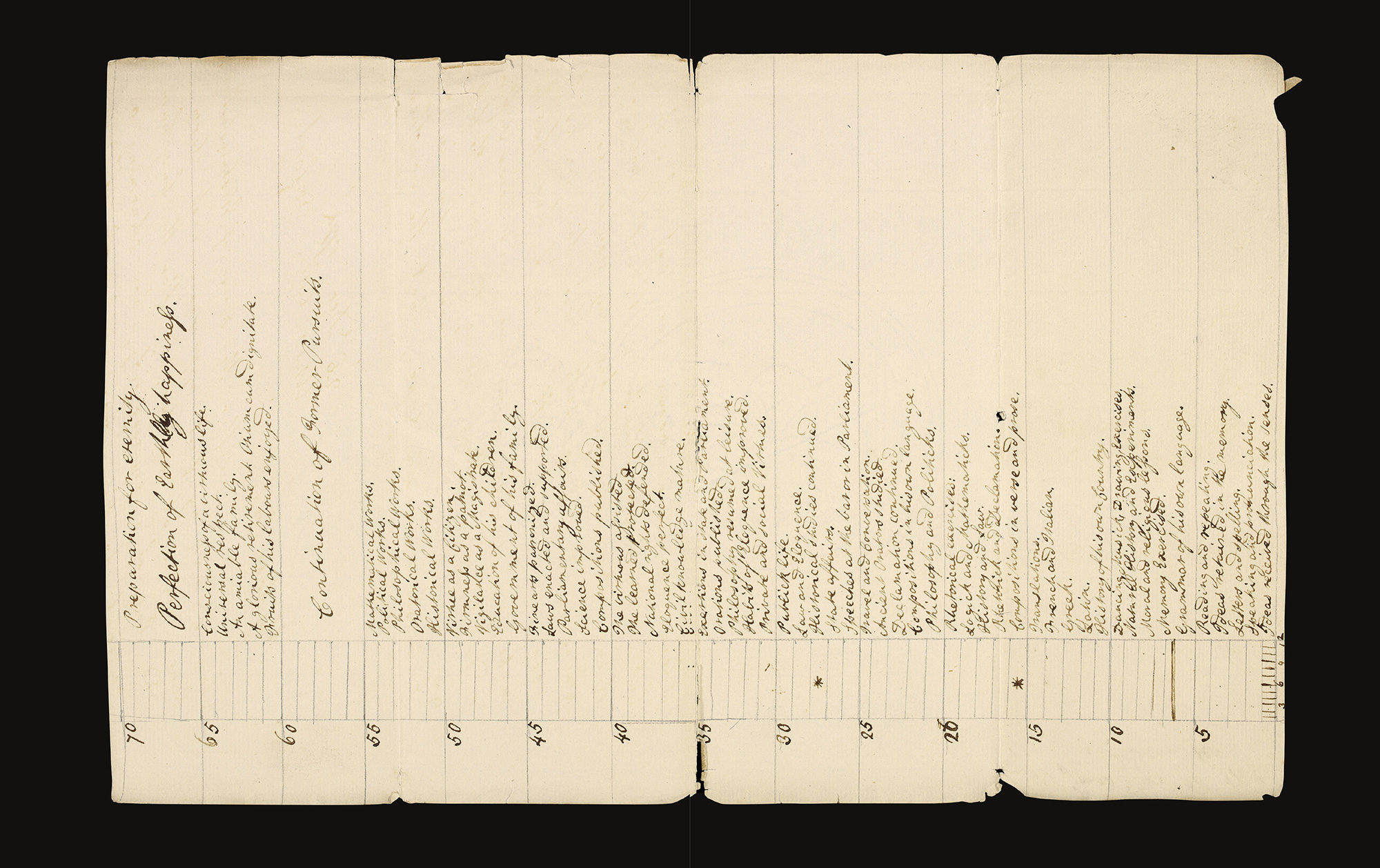Translation, Memory, and Mastery
The Andrometer of Sir William Jones
Daniel Dewispelare

Benjamin Franklin enshrined thirteen virtues necessary for moral perfection. In their journals, Percy and Mary Shelley composed elaborate reading schedules meant to advance their education. But only the peculiar eighteenth-century polymath Sir William Jones lived according to the dictates of the andrometer.
Part index of intellectual achievement, part moral barometer, the andrometer was originally designed by Jones as a scale facilitating self-reflection. Later, he generalized its principles in order to map a directed course through the cloud of directionless human knowledge. As he wrote in 1774 to George John Spencer, Viscount Althorp, the young aristocrat he had tutored for ten years, the andrometer “will enable you to measure every man’s merit by looking for his age in the scale, and then comparing it with the other side, and seeing to what degree he has risen in arts, sciences and ornamental qualifications.”[1] The andrometer’s left side lists the years of life, the right lists the topics of study, and across the top the year is subdivided into three-month increments. Just as the etymology of the name implies, the andrometer measured only men. Jones’s method of measuring women—if it existed—would presumably have looked much different. But for the small body of men worthy of a university education, he believed a well-constructed andrometer could provide the fusion of moral and intellectual guidance absent from a world of contingency. Every year of life must correspond to a specific domain of learning. Any man successful enough to outpace the attainments it delineated must pause and recalibrate a more challenging andrometer so that no day’s potential would be wasted.
To an age more familiar with lurching through semester-long course syllabi, it is important to point out that the andrometer was not simply a life-long syllabus for personal enrichment. On the contrary, Jones advocated that every academic pursuit must explicitly orient itself toward the public good. In order to be worthwhile, any expenditure of a gentleman’s time on intellectual acts must further public goals and fortify the community. During his life, Jones produced numerous general and personalized andrometers, all of which grew out of this basic conceptual contiguity between individual and community goals, a contiguity that contrasts with the now popular perception that humanities scholars sit detached in the ivory tower, sipping wine, crossing their legs, and trading refined witticisms.